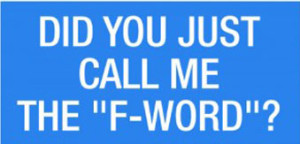
Fiduciary duty. We’ve all heard, but do we really know what it means?
One very important thing to remember when living in an association is that the board is made up of owners. The difference is that these owners have volunteered their time to serve the community. They work hard to uphold aesthetic standards and to make sure that all owners are complying with the association’s governing documents.
The common “us” versus “them” mentality must be dispelled; from both sides of the equation. Everyone is a member of the community and is in it together. Board members and owners have the same desires for the community. The biggest difference between board members and owners is that board members have been elected to serve the community and are subject to a fiduciary responsibility to the association and community as a whole. While meeting these responsibilities, the board must recognize the personal and community aspects of the association.
Many associations are established as corporations. A corporation is typically run by a board of directors elected by the shareholders. In associations, these shareholders are the owners and they elect a board of directors to run association business. Even associations that are not established as a corporation are run by a board of governors or some other administrative body. This governing body owes a fiduciary responsibility to the entire community.
A “fiduciary duty” is generally defined as:
a legal or ethical relationship of confidence or trust between two or more parties where one party is under a duty to act for the benefit of others on matters within the scope of that authority.
The phrase “fiduciary duty” has its roots in corporate law and is the highest ethical of legal standard of care. Boards of directors in corporations have a fiduciary responsibility to shareholders. General corporate law requires a board to work so that the corporation’s assets are protected and the shares do not lose all of their value. The board of an association serves a similar function for the owners/members.
The board of a homeowners association owes a fiduciary responsibility to the corporation and to all of the owners within the community. This means that the board must make sure that maintenance is performed and that the governing documents are enforced.
This isn’t a one way street. In fact, this extremely high legal duty must be kept in mind if you are an owner facing enforcement action from your association, and a board must keep this in mind when starting enforcement procedures against owners.
Keep in mind that not all F words are bad. The fiduciary obligation owed by HOA board members is very real and is designed to ensure that HOA directors look out for the community and put the community interests above their own. Can you share an example of an HOA director who demonstrates this trait?

2 Comments
Add a Comment